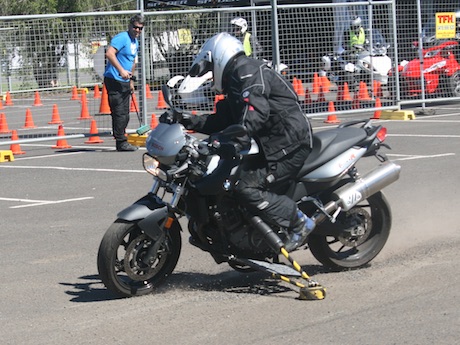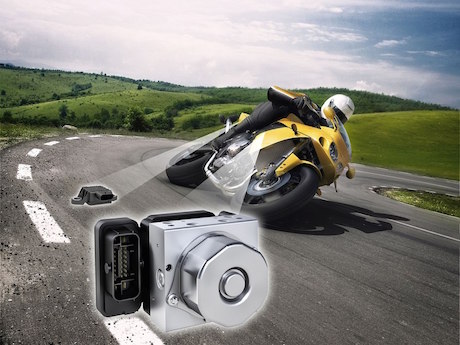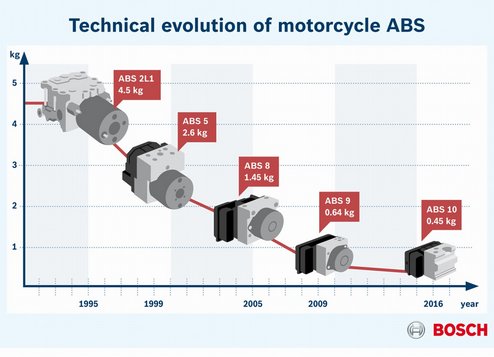A real-world study into the effects of ABS in motorcycle crashes has been completed with the help of Australian riders.
There have been plenty of studies in the past about the effectiveness of ABS on motorcycles, but they are all statistical summaries and not real-world surveys.
Last year UK motorcycle road safety researcher Dr Elaine Hardy contacted us to publicise her research and attract Australian riders who had been in an ABS-equipped bike crash to participate in the study.
Now she has released the results of the first real-world study of ABS effectiveness. You can read the full “Effects of ABS in motorcycle crashes” survey here.
It involved surveying 60 male riders and one female with 25 respondents from Australia, 34 from Europe and two in South Africa.
“ABS can and does make a difference,” says Elaine who worked on the study with colleagues from universities in Europe.
“The underlying problem that everybody seems to be oblivious to is the importance of hazard awareness training and simply how to brake in emergencies (with or without ABS).
“There is a lot of misinformation out there. The purpose of this study is to find facts about what happens when riders crash, not debate about mandating ABS or not.”

The horse has already bolted on mandatory ABS in several countries, anyway.
India makes it mandatory for all motorcycles with an engine bigger than 125cc from April 2017, More than one in three new motorcycles manufactured in Europe is now fitted with ABS and Japan, Europe, Brazil and Taiwan have mandated anti-lock brakes on designated motorcycles.
There are no calls in Australia yet for ABS to be mandated on bikes, but the Federal Chamber of Automated Industries and VicRoads say ABS is safe and a Monash Uni statistical study says it would save lives.
Even if ABS isn’t mandated, motorcycle companies are rolling out the technology across their range.
Elaine says she has spoken with industry representatives who say that because the cost of the technology has dropped considerably all bikes, except mopeds, will end up with ABS brakes.
“So they are not fussed whether the system becomes mandatory or not – because all bikes 125cc+ will end up having them anyway – and the cost will be absorbed through sales,” she says.
Elaine’s study is the first real-world research into ABS motorcycle crashes, but she says more needs to be done.
“Although this pilot survey is a small sample, the wealth and depth of information provided by the motorcyclists who participated allows for a wide range of analysis of the details that resulted from the questionnaire and the responses,” she says.
The study found the typical speed of 32% of the riders was between 41-60km/h, while 13% indicated their speed prior to braking was 61-70km/h. Only four (7%) indicated their speed was more than 100km/h prior to braking. Eight (14%) were travelling at speeds up to 20km/h prior to braking.
“In particular, the riders overwhelmingly recognised the risk of injury if they are involved in a crash and thus wore highly protective clothing and helmets,” she says.
In terms of how the speed before braking affected the injury severity, the study suggests that the injury outcome appears to be nearly random, or rather it is dependent on circumstances other than speed.
When asked whether the riders applied their brakes prior to crashing, 52 (85.2%) replied that they did.
“This response is possibly the most important and relevant question and answer in the survey,” Elaine says.
“The reason is that the focus of this survey and its response regards advanced (anti-lock) braking systems and whether the dynamics of the outcome of the crashes matters or whether there is something else that requires attention.”
Elaine says licence training is usually designed for the novice to pass a test, rather than being trained to survive, let alone understand the dynamics of ABS.
She says it is important the rider understands how to use ABS and has sufficient knowledge of emergency braking and hazard awareness to prevent a crash.




